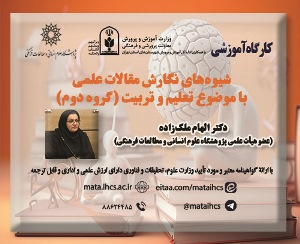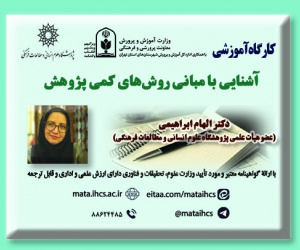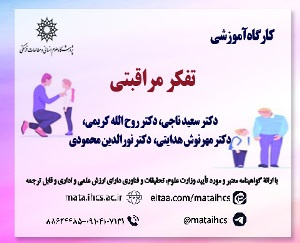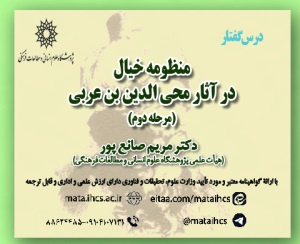دیدگاه پرستاران بخش کرونای بیمارستان های شهر یزد ازمفهوم مراقبت مشفقانه: یک مطالعه کیفی (مقاله علمی وزارت علوم)
درجه علمی: نشریه علمی (وزارت علوم)
آرشیو
چکیده
هدف: در همه گیری کووید-19پرستاران نقش اصلی مراقبت را در تیم درمان برعهده داشتند مفهوم مراقبت به عنوان جوهره پرستاری شناخته شده و امروزه مراقبت مشفقانه با تاکیدی که بر ارزشهای اخلاقی و انسانی دارد بطور ویژه ای مطرح گردیده است؛ لذا پژوهش حاضر با هدف کاوشی بر دیدگاه پرستاران شاغل در بخش کووید-19، درخصوص مراقبت مشفقانه انجام گرفت تا با شناساندن این نوع مراقبت، بتوان خدمات بهتری به بیماران ارائه نمود. روش : روش پژوهش حاضر، کیفی و براساس راهبرد پدیدارشناسی توصیفی بوده و نمونه پژوهش از بین پرستاران شاغل در بخش کووید-19 بیمارستانهای شهدای کارگر وشهید رهنمون یزد بر اساس نمونه گیری غیرتصادفی هدفمند انتخاب شدند و مصاحبه های نیمه ساختاریافته تا رسیدن به اشباع داده ها یعنی تا نفر شانزدهم (16) ادامه یافت. مصاحبه ها با رعایت اصول اخلاقی و کسب اجازه از مصاحبه شوندگان ضبط و کلمه به کلمه نوشته شد. برای تحلیل داده ها از روش هفت مرحله ای کلایزی استفاده گردید. یافته ها: پس از استخراج مفاهیم، و تحلیل آنها، 17مقوله فرعی و درنهایت 9 مقوله اصلی شامل داشتن دید انسانی به بیمار، شفقت الهی، شفقت عجین شده با پرستاری، تحمل پریشانی، همدردی، رفتار مشفقانه، قانون عمل و عکس العمل، عدم اجبار و توجه مشفقانه استخراج شد. نتیجه گیری: ، پژوهش حاضر نشان داد که مراقبت مشفقانه یک فرآیند ذاتی، انسانی و معنوی است که لازمه آن، داشتن یکسری از مهارت های ویژه است، از نتایج این پژوهش می توان جهت شناساندن وگسترش این نوع مراقبت در مراکز درمانی و بالتبع آن رسیدگی بهتر به بیماران و بهبودی سریعتر آنان بهره جست.متن
The point of view of the nurses of the corona department of Yazd hospitals about the concept of compassionate care: a qualitative study
Aim: In the covid-۱۹ pandemic, nurses played the main role of care in the treatment team. The concept of care is known as the essence of nursing, and nowadays compassionate care with its emphasis on moral and human values has been specially brought up. Therefore, the current research was conducted with the aim of exploring the views of nurses working in the Covid-۱۹ department regarding compassionate care, so that better services can be provided to patients by introducing this type of care. Methods: The current research method is qualitative and based on descriptive phenomenology strategy, and the research sample was selected from among the nurses working in the Covid-۱۹ department of Shahada Kargar and Shahid Rahmanmon Hospitals in Yazd based on non-random sampling and semi-structured interviews until reaching data saturation, i.e. It continued until the sixteenth (۱۶) person. The interviews were recorded and written verbatim by observing ethical principles and obtaining permission from the interviewees. The seven-step Colaizzis method was used for data analysis. Results: After extracting the concepts and analyzing them, ۱۷ sub-categories and finally ۹ main categories include having a human view of the patient, divine compassion, compassion mixed with nursing, distress tolerance, sympathy, compassionate behavior, the law of action and reaction, lack of Coercion and compassionate attention were extracted. Conclusion: Conclusion: The present research showed that compassionate care is an inherent, human and spiritual process that requires having a series of special skills. From the results of this research, it can be used to introduce and spread this type of care in medical centers and, of course, take better care of It benefits the patients and their faster recovery.






